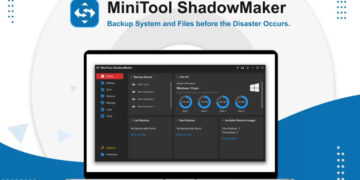Are you looking to broaden your business horizons and rake in big bucks? Private sector contracts in the IT realm can help you do just that! These contracts, awarded through competitive bids, offer the contractor and the client many benefits.
If you’re a contractor, you can find IT contracts with a few of the sweetest deals possible as they keep the work pouring in, so you can plan for the future without worry. You’ll also get the chance to learn about all the latest technologies and industries, making you look pretty impressive to future clients, with a major bonus being that private sector contracts allow you to build long-lasting relationships with clients, leading to an influx of repeat business and referrals.
Private sector contracts can give clients access to specialized expertise they don’t have in-house as they should be able to tailor IT solutions to their specific business needs and have greater control over project oversight. This results in a win-win for clients who want to ensure their requirements are met.
How do IT Private Sector Contracts Work?

So you want to know how IT private sector contracting works? Well, it usually starts with a fancy request for proposal (RFP) from the client. In the RFP, the client tells what they want and need for their project. After that, providers can present their proposals and how much they’d charge for them.
So, you’ve picked a service provider? Now comes the time to seal that deal which means agreeing on the nitty-gritty details of the project, such as the work to be done, pricing, payments, and deadlines. Once everyone is happy with the fine print, the provider can get started on bringing the project to life.
The art of grabbing IT private sector contracts is all about teamwork between smaller hitters and the big dogs in service providers. Smaller businesses get a shot at new business ops and a chance to rock procurement like nobody else. Guarding client data is key in private sector IT contracting, especially cybersecurity and to protect against automated content detectors, service providers should have appropriate measures marked as a priority.
The Different Stages of the IT Private Sector Contract Process

The IT private sector contract process involves several stages, including:
- Research and Networking: This stage usually involves researching a bit about potential vendors and networking with them to build relationships and differentiate oneself from competitors.
- Requirements Gathering: At this stage, you’ll need to gather the requirements for procuring IT goods or services.
- Request for Proposal (RFP): This stage involves issuing an RFP to potential suppliers, which should outline the requirements and evaluation criteria for this step.
- Bidding: This stage involves suppliers having their bids submitted in response to the RFP.
- Evaluation: Involves evaluating the bids that were received from suppliers against the evaluation criteria outlined in the RFP.
- Site Visit: This involves visiting the supplier’s site to assess their capacity and expertise.
- Award: At this stage, the contract is being awarded to the successful supplier.
Conclusion
And that’s a wrap! Yup, IT contracts can be a bit of a puzzle to solve, but with some good legal advice and a grasp of the various types of contracts out there, businesses can score some seriously sweet deals.
So you’ve got to keep the language in your contract clear as fancy jargon and take a nice long look at any project labor agreements or outsourcing rules before you consider bidding on any contract.













































